UPEI's Mawi'omi Centre embraces and educates students from all backgrounds
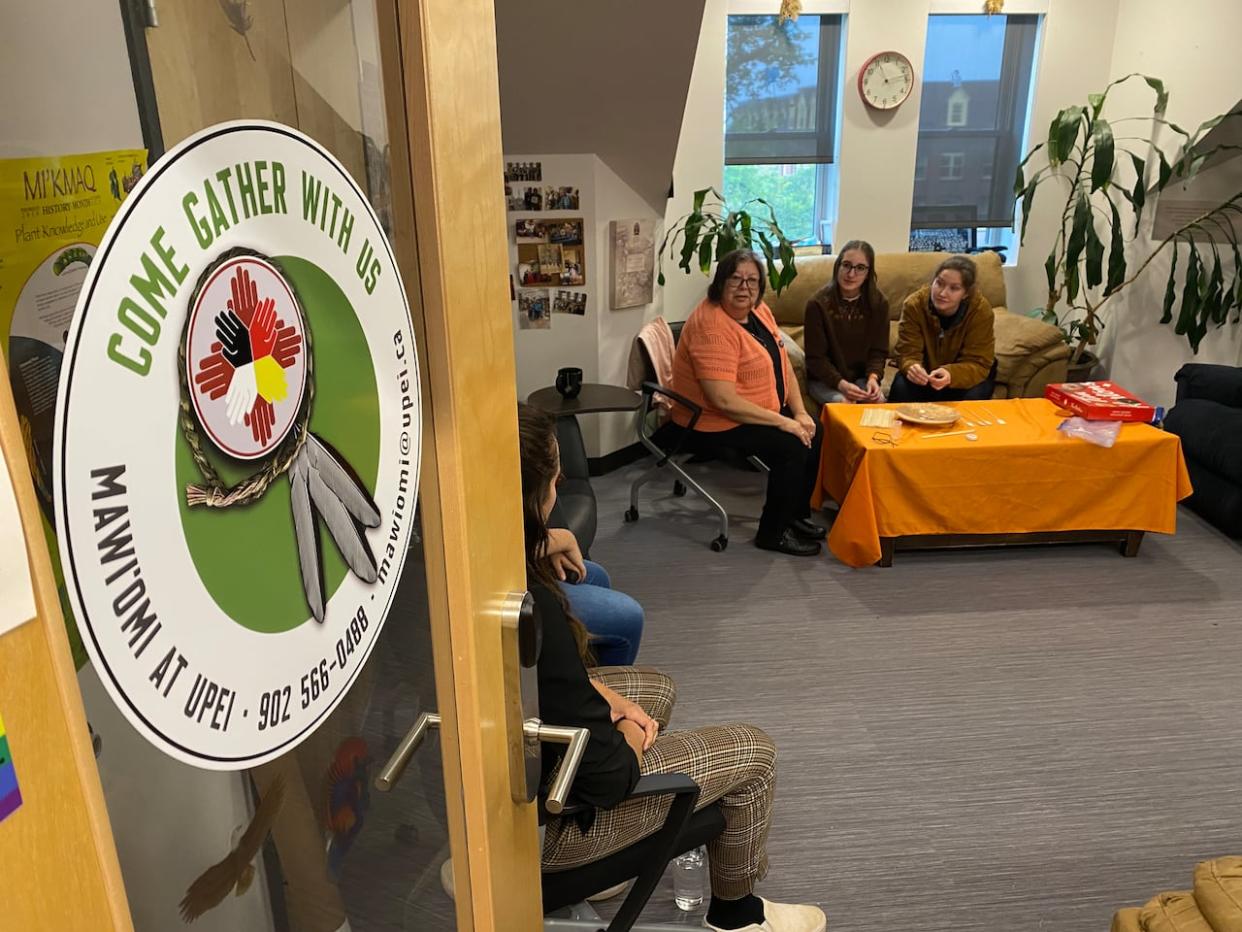
The University of Prince Edward Island's Mawi'omi Indigenous Student Centre is tucked away on the fifth floor of the campus administration building, Dalton Hall. For students who know it, the room provides a much-needed space to catch up with each other, get academic advice, or just relax.
In the middle of the morning on the first Tuesday drop-in of the semester, a handful of students were gathered around Elder-in-Residence Judy Clark. She was teaching them how to play waltes, a traditional Mi'kmaq game that involves flipping pieces of engraved bone or antler on a game board.
"You can feel it, and you talk to it, and you want them to dance for you," Clark said, shaking the pieces on the centre's game board, made from a tree burl.
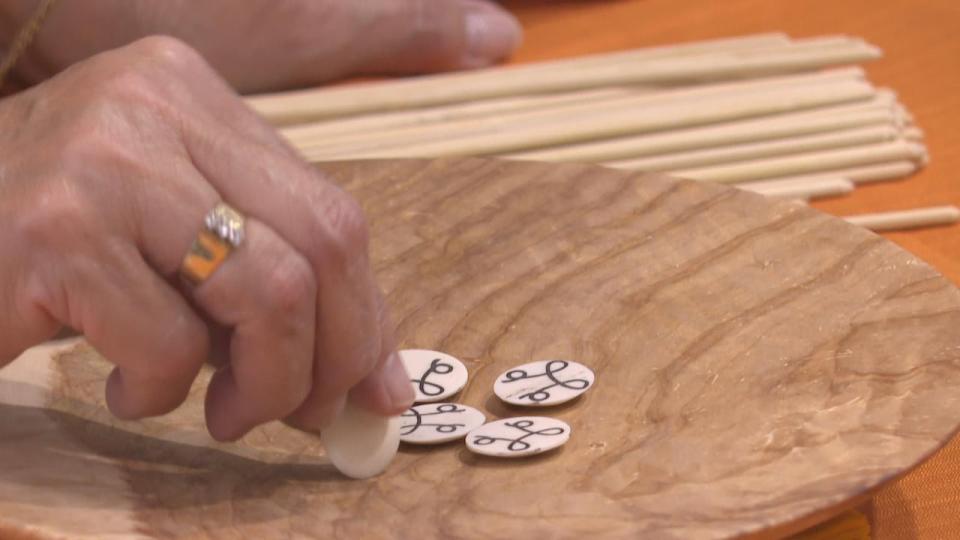
Judy Clark shows students at the Mawi'omi Centre how to play waltes, a traditional Mi'kmaq game. (Jane Robertson/CBC)
One of the students was Jessie Lawrence, in their third year of diversity and social justice studies with a minor in Indigenous studies. Their family is part of the Qalipu First Nation on the west coast of Newfoundland.
Lawrence grew up hunting and fishing, and always wanted to connect more with other Indigenous folks.
"It's always a really nice, calm space that has really good people in it all the time," they said. "And you're allowed to smudge in there, so that's always nice, to have a place on campus [where] we can do that."
Lawrence said connecting with elders like Clark help them feel a sense of connection to their Indigenous heritage.
"I really think it's one of the best things that UPEI has, period. For many of us, we haven't had access to our elders for so long," they said. "So having an elder-in-residence really gives us that opportunity to ask questions, learn and navigate life circumstances in a very holistic approach."
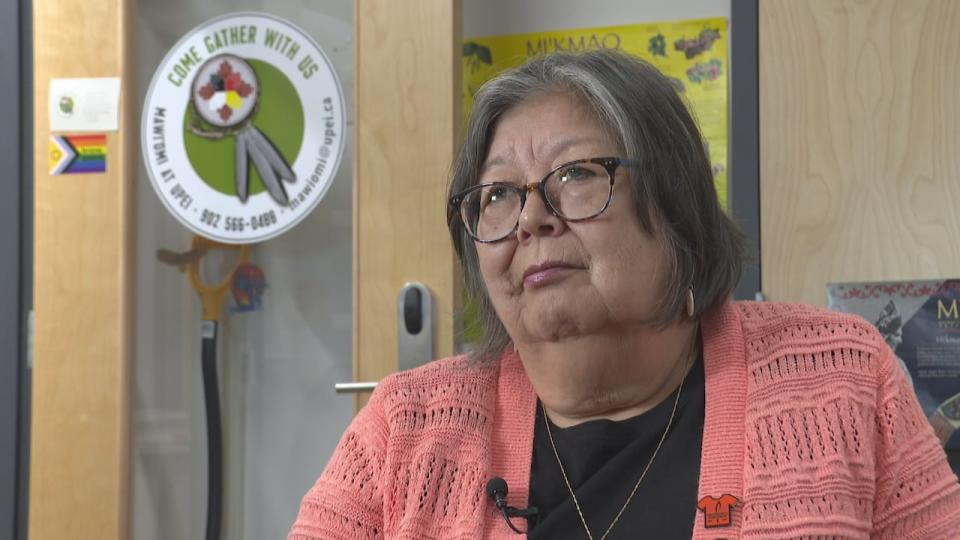
UPEI's Elder-in-Residence Judy Clark is from Abegweit First Nation, and works to connect the university with the Indigenous community on P.E.I. (Jane Robertson/CBC)
As elder-in-residence, Clark doesn't just advise students; she also helps campus departments connect with Indigenous people in the community and works to meet cultural needs on campus.
"Sometimes a faculty doesn't know what protocol is, and so they come and they ask me, 'What's the protocol of offerings?'" Clark said. "So it's just helping them to understand our way of life."
'All our relations'
One of the Mawi'omi Centre's two small offices belongs to Clark, and the other to Jasmine Pauzé, who's been the centre's co-ordinator since 2022.
Pauzé said the centre's most important role is as a gathering space. That's fitting, since Mawi'omi means "gathering" in Mi'kmaw.
"We have people — from students to staff to community members and faculty — come here and either share how their week's going, ask us to collaborate with them, or they have questions about culture or spirituality. It's just kind of a knowledge-sharing space," said Pauzé.
The centre doesn't just help Mi'kmaq students. Other Indigenous students from across Canada come to connect and learn about the local culture. For example, Pauzé is from Garden River First Nation in Sault Ste. Marie, Ont.
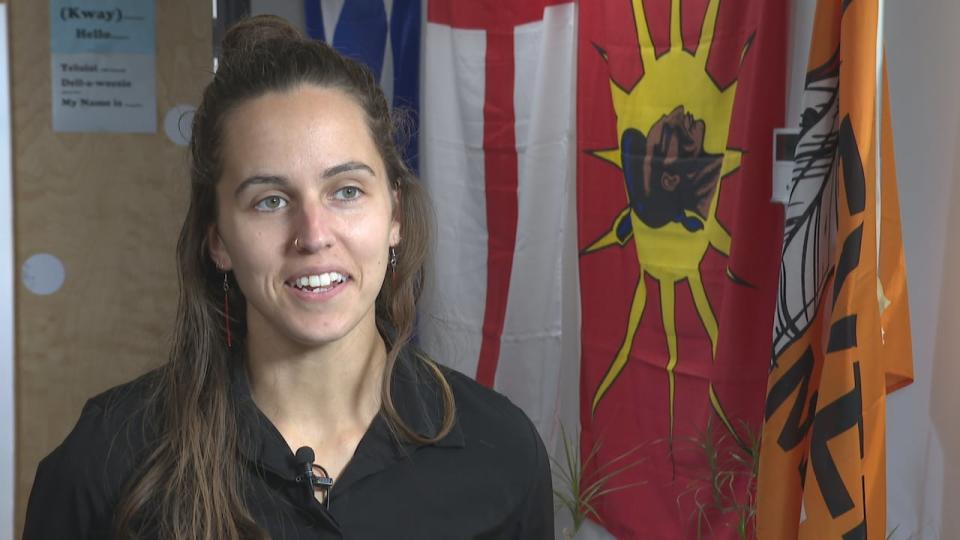
As the Mawi'omi Centre's coordinator, Jasmine Pauzé speaks with students one-on-one and hosts events for both Indigenous and non-Indigenous students. (Jane Robertson/CBC)
"When we think about the saying 'all our relations,' it doesn't just extend to those in Mi'kma'ki or those in Mohawk territory or Ojibwe territory. We are eventually all connected and you see that in some of the overlap of culture," Pauzé said.
"I think it's always beautiful when you're sharing something and someone's like, 'Oh yeah, I'm Cree and this is how we do it.'"
UPEI's role in reconciliation
Other students who come to the Mawi'omi Centre aren't Indigenous at all — especially since the university created its Faculty of Indigenous Knowledge, Education, Research and Applied Studies (IKERAS) in 2021 and made an introductory Indigenous studies course a graduation requirement for new students beginning last year.
It's important to understand the other cultures of people who are here, because that's what makes up the Island; that's what makes up Canada; that's what makes up the world. — Reese Carmody
The course is called "Indigenous Teachings of Turtle Island."
"It's important to understand the other cultures of people who are here, because that's what makes up the Island; that's what makes up Canada; that's what makes up the world," said Reese Carmody, a third-year history student from Irishtown, P.E.I., who's currently taking the course.
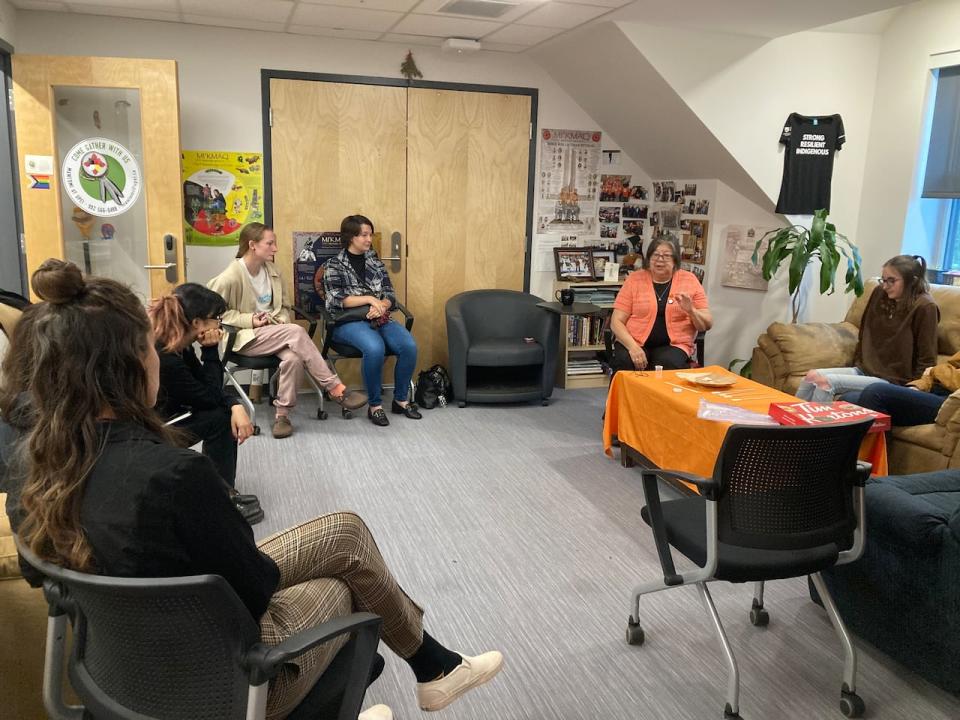
Students at UPEI's Mawi'omi Indigenous Student Centre gather during the first drop-in event of the year to hear from Elder Judy Clark. (Victoria Walton/CBC)
About one-third of the mandatory introductory class is made up of international students, so the move is allowing people from other cultures to learn about Indigenous history in Canada as well.
"It's good to have it required, especially since I find that we need more than just land acknowledgements and statutes. To me, that feels a bit performative," said Daenelle Magbanua, a first-year psychology student from the Philippines.
At this point, the IKERAS faculty has 17 professors and puts an estimated 1,200 students through its introductory class each year.
David Veris is an assistant professor in the faculty who's Cree, from Peguis First Nation in Manitoba, and has been teaching at UPEI since 2002.
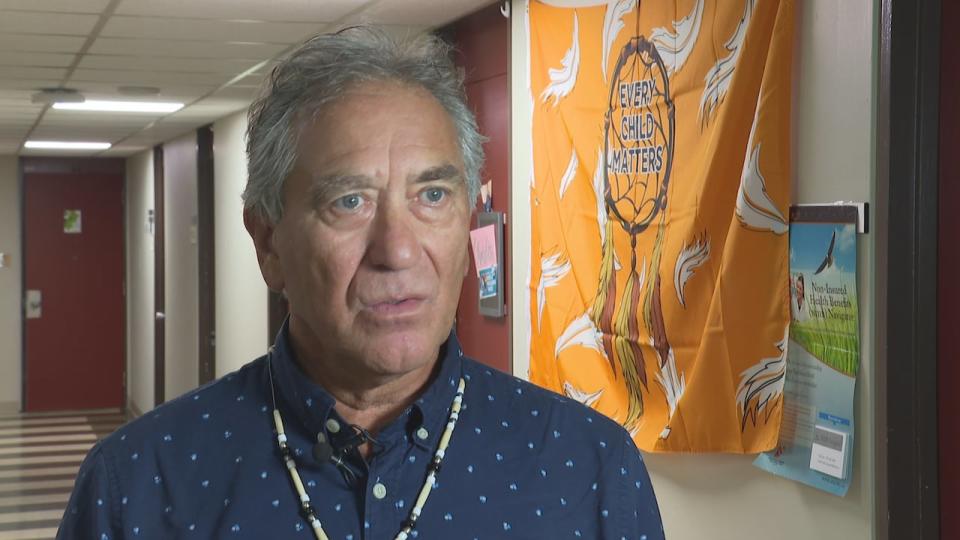
Assistant professor David Varis has been at the university since 2002, and saw the new Indigenous studies faculty grow from the ground up. (Jane Robertson/CBC)
"It's been quite emotional, really, because I was the sole person here for many, many years. Then other Indigenous scholars joined," he said.
"But when they announced the faculty, it was real.... We couldn't believe that we were going to get a faculty, a full faculty equal to... [the] faculty of Science, faculty of Business."
Varis said the 2021 discovery involving 215 unmarked graves at the site of a former residential school in Kamloops, B.C., made more educational institutions realize they had to step up.
"That changed everything. It became real, became real for Canadians. It became real for our institutions and particularly our students," he said.
"And the institutions really started to pay attention to this and really question themselves: What is our role in reconciliation?"
Back at the Mawi'omi Centre, Clark was showing off the poster for this year's Mi'kmaq History Month, which begins Oct. 1. Pauzé was offering tea to the room, listing the vast array of flavours the centre has in stock.
Both the centre and the IKERAS Faculty have come a long way in recent years, something that gives Pauzé hope for even more growth in the future.
"It's a lot of emotion," they said. "When I was going to school, there were still a lot of disconnecting culture for me.
"To see these young people have so much confidence and so much genuine curiosity and to be so willing to accept that maybe they don't know the history, but they want to learn — it's really beautiful to see."


